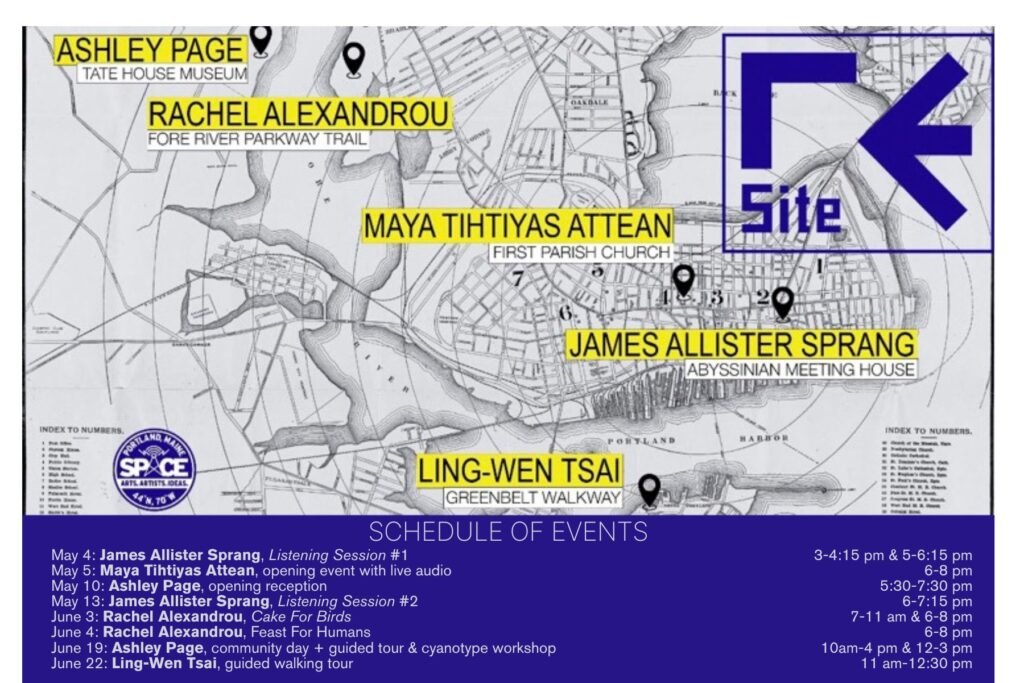Tate House Museum is pleased to announce our participation in Re-Site 2024 in
partnership with SPACE. This Mellon Foundation-funded program is the second edition of a
site-specific temporary public art and Portland history-telling initiative first launched in 2020 as
part of Maine’s Bicentennial. Re-Site 2024 offers five new artistic projects in partnership with
diverse public organizations and spaces that will help expand community knowledge of local
histories and their impacts today as well as generate dialogue about what we carry with us into
the future. Re-Site 2024 projects come with site histories, artist statements, bibliographies for
further reading, and recorded conversations with the artists and other key participants. FMI about
Re-Site 2024, visit space538.org.
Tate House Museum will host an Opening Night Reception with Re-Site 2024 Artist Ashley
Page on Friday May 10 from 5:30-7:30 pm. This event is free and open to the public, and will
include viewing of Ashley’s art installation titled Imagining Freedom in the context of the
historic 1755 Tate House. Her artwork will be on display through June 30 and can be viewed as
part of Tate House Museum’s regular house tours, opening for the season on June 5, Wednesdays
– Saturdays, 10 am – 4 pm, through mid-October.
Ashley Page (ashleypagestudio.com), interdisciplinary artist and Studio and Programs Manager
at Indigo Arts Alliance, describes her project as follows:
Reconciling Portland, Maine’s history of industrialization and colonization while contending
with the global reverberations of the Trans-Atlantic Slave Trade, Imagining Freedom, asks the
viewer to step into the shoes of an enslaved Black individual, Bet. Her age, appearance,
homelands, and quality of life are all unknown, lost to the unraveling nature of time. Only
appearing in court records, we know nothing about Bet other than that she was a servant living
and working in the Tate House in the 1770s for an indeterminate amount of time. Researching
the social, political, and economic landscape of Maine during this period and reviewing archival
documents, Page makes an intentional departure from the archive as she asks the guiding
question: What did freedom look like for Bet? What did her daydreams look like, sound like,
taste like? This historical recovery project grapples with the ways enslaved peoples were
excluded from historical records and navigates new ways we tell our stories.
Stay tuned for more information about an upcoming workshop by Ashley Page on Juneteenth
(June 19 th ) that will highlight her artistic process.
Join us for this unique and provocative viewing and more inclusive telling of Tate House and
colonial Portland history.
FMI: contact Director Holly K. Hurd
hkhurd@tatehouse.org
207-774-6177
Tate House Museum
1267 Westbrook Street


